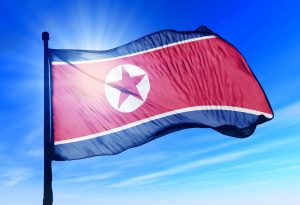Kim Yo Jong, the powerful sister of North Korean leader Kim Jong Un and Pyongyang’s main voice on inter-Korean relations, belittled the chief of the United States’ Indo-Pacific Command, who was reported to have said that the North’s intercontinental ballistic missiles would be immediately shot down if fired into the Pacific.
“The Pacific Ocean does not belong to the dominium of the U.S. or Japan,” Kim said in her statement published by Korean Central News Agency, one of the main state-controlled media outlets in the North, on Tuesday.
According to the South’s domestic media, Admiral John Aquilino, commander of the U.S. Indo-Pacific Command, made the remarks during an official meeting with the South Korean counsel general at the Korean consulate in Honolulu, Hawaii, on February 24. The comment came after Kim Yo Jong threatened to use the Pacific as the North’s shooting range.
“It is very interesting to see how the U.S., whose forces frequently conduct the test-launches of strategic weapons in the Pacific every year as if the ocean were its yard, will respond if a third country attempts to intercept them under the reason for counteraction,” Kim said.
North Korea has repeatedly published statements criticizing the U.S. and South Korean militaries’ activities in the past few days. On Sunday, a North Korean Foreign Ministry official laid out how the combined military exercises between South Korea and the United States escalate tensions in the Korean Peninsula. Another official legitimized the North’s nuclear development, saying its nuclear deterrent “serves as a powerful physical guarantee” amid the increasing danger of armed conflict in the region.
North Korea has repeatedly warned that it will make a military response as an act of self-defense against the reinvigorated South Korea-U.S. military drills. South Korea-U.S. large-scale field exercises are set to resume next week for the first time in five years; Pyongyang has urged Washington and Seoul to immediately halt the drills.
At the same time, the United States and its allies have been demanding that North Korea halt its illicit nuclear and missile programs. However, as China and Russia, both permanent members of the U.N. Security Council, have vetoed the U.S.-led moves to punish North Korea for its missile launches, the international community’s efforts to contain the North’s missile development have been impeded.
Since the breakdown of the Hanoi summit in 2019, North Korea has readopted its old-school, “strength to strength” policy toward the United States and South Korea. Although Seoul and Washington have kept the door for dialogue open, Pyongyang has ignored their calls and openly highlights its efforts to develop more powerful and advanced nuclear weapons.
In order to respond to Pyongyang’s continuous nuclear and missile development, Seoul and Washington scaled up their combined military drills by deploying U.S. strategic assets. Also, the South Korean government has emphasized the necessity of concrete trilateral military cooperation with the United States and Japan in a bid to cope with the North’s missile threats effectively in the region.
“As already clarified, we keep our eye on the restless military moves by the U.S. forces and the South Korean puppet military and are always on standby to take appropriate, quick and overwhelming action at any time according to our judgment,” Kim said in her statement.
The South Korean military confirmed the schedule of its regular springtime joint military exercise with the United States, which will take place from March 13 to 23. Considering Pyongyang’s warnings in the past few days, North Korea may take actions such as launching long-range ballistic missiles as a corresponding measure.
Some have cautioned North Korea could even conduct its seventh nuclear test, but that is unlikely. A nuclear test is a red line for Beijing, and Pyongyang needs economic aid from China to deal with its thorny economic situation.

































